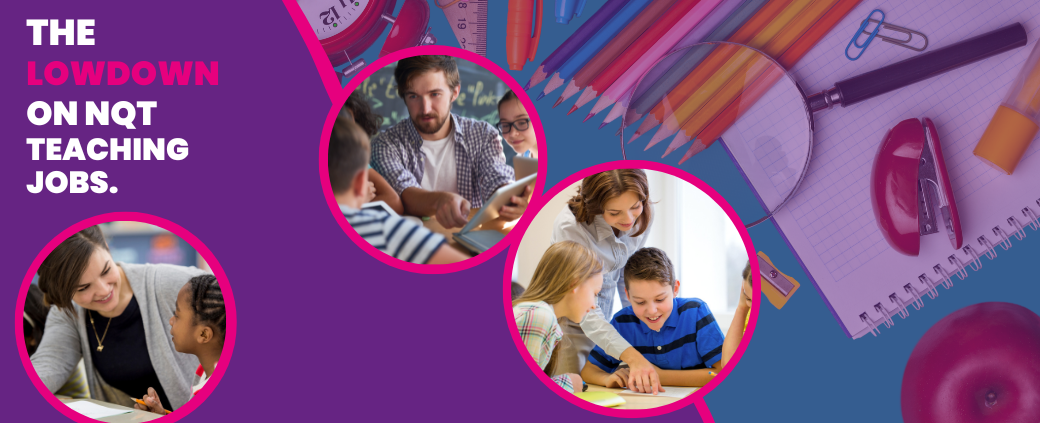The lowdown on NQT teaching jobs.
NQT’s ask us ‘When should I start looking for my first teaching job?’ a lot, and this is an interesting question. You started your PGCE in September and your fellow students are already talking about finding a job by December. This can make you feel rushed, but our advice is not to rush into it.
There’s a lot to consider when applying for your first teaching position. We hope this blog helps to answer some of your questions and helps to get your applications off to a great start.
When should NQT’s Apply?
Teacher positions can of course open at any time, but most commonly after Christmas for a September start date.
The peak time for applications though is between the start of March and the end of May. This is because Easter is the deadline for teachers to hand in their notice for the current school year. Some schools will advertise as early as January, while others may advertise as late as June or July, due to unforeseen circumstances.
It’s worth applying for roles, either permanent or temporary (or both), as soon as you’ve submitted your dissertation. Seeking a temp role as soon as you’ve completed your dissertation will allow you to:
- Earn money in a relevant role
- Gain valuable experience in a variety of schools while applying for permanent roles
- Learn new skills
- Boost your CV, helping you to stand out from the competition
The teacher recruitment timetable: what to do and when
Autumn term: Start looking early and don’t just apply to any school. Consider what’s important to you, the ethos, site, size and catchment of the school you’d like to work at. Autumn is a great time to do some research on the schools in your ideal area and to attend university recruitment fairs.
December and January: Local Authorities advertise vacancies and may have closing dates. In January, schools start directly advertising vacancies.
January to May: This is the busiest period for recruitment. Register with websites to receive updates on the latest opportunities. Make applications to teacher registration schemes and databases.
Consider registering with an agency for supply work. This experience will be incredibly valuable, giving you more to put on your CV to stand out, allowing you to gain valuable experience and another bonus, earn money.
31 May: The final date before which teachers leaving their jobs in the summer must resign, so more jobs appear around this time.
Where to Look
Most primary schools will advertise on their local authority website (look up local council education jobs) and in the local newspaper.
Secondary schools tend to use job websites.
Agencies are great resource also, with full-time and part-time contracts available, which could work around your studies and other commitments until you’re ready to start a new role in September. The more flexible you are, the more work you can get. As you get to know them more, you can work with the agencies to tell them your preferences and strengths.
Applications and CVs
Schools may have their own application form they would like you to complete. Sometimes this is a form set by the local authority. Other schools may request a CV and cover letter. Often the most difficult part of the application is the personal statement. This is where you explain why you would be the best candidate for the role.
Be very specific when completing the application form – tell them what you’ve done, focusing on your successes and giving as many examples from your time in the classroom as possible.
Personal statement
Write a strong 300 to 400-word personal statement; show you’ve done your research and understand something about the school you’re applying to, talk about your course and what you’d personally bring to that school. Get some feedback on your form before you send it off.
Here are a few helpful tips to tick off as you write your personal statement:
- tailor your application to the school, for example their ethos, Ofsted report and latest exam results
- visit the school, as many recruiters view this as a part of the application process and it can help you to see if you would want to work there
- get it proofread to ensure there are no spelling mistakes
- ensure your employment history has no gaps and if it has make sure they’re explained
- tell them what skills and extracurricular opportunities you can bring
- convey a passion for teaching
- evidence your success, where you bring added value and have met targets.
Managing Expectations
Finding the perfect role can take time, and sometimes it takes a while to get into the flow of interviews. Some people will find this easier than others. It’s important to persevere and have someone to talk to who can support you during this potentially difficult time.
Good Luck!
If you’d like to get in touch with Initial Education to understand how we could help you, give us a call on 01452 740001 or you can register your interest here.











